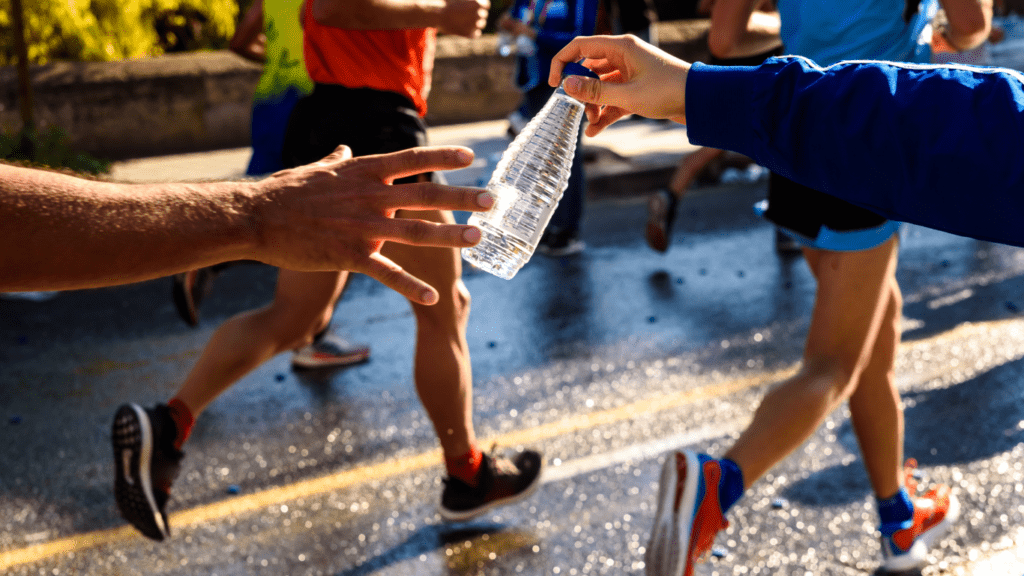When it comes to staying active and avoiding injuries, most people think about proper technique or stretching. While those are important, I’ve learned that what we fuel our bodies with plays an equally crucial role. Nutrition and hydration aren’t just about energy—they’re the foundation for keeping muscles strong, joints healthy, and recovery quick.
The Importance Of Nutrition In Injury Prevention
Proper nutrition directly supports the body’s ability to prevent and recover from injuries. A diet rich in essential nutrients strengthens muscles, improves joint health, and reduces inflammation.
Essential Nutrients For Joint And Muscle Health
Calcium, vitamin D, and magnesium are critical for maintaining strong bones and joint function. Calcium helps preserve bone density, while vitamin D enhances calcium absorption. Magnesium supports muscle function and reduces cramping. I also rely on omega-3 fatty acids, found in fatty fish and flaxseed, to reduce joint stiffness and promote flexibility.
Vitamin C contributes to collagen production, essential for tendons and ligaments. I include:
- citrus fruits
- strawberries
- bell peppers
to boost my intake. Potassium from bananas and spinach helps regulate fluid balance, preventing muscle fatigue.
The Role Of Protein In Recovery And Strength
Protein builds and repairs muscle tissues after physical stress. Lean sources like chicken, fish, eggs, and plant-based proteins like lentils ensure adequate intake. Consuming 20–30 grams of protein after exercise enhances muscle recovery and minimizes soreness.
Amino acids, especially branched-chain amino acids (BCAAs), play a key role in muscle repair. Foods like chicken, dairy, and soy deliver these essential components. When recovering from injuries, I prioritize protein-rich meals to accelerate healing and maintain strength.
Anti-Inflammatory Foods And Their Benefits
- Chronic inflammation slows healing and increases injury risk.
- Anti-inflammatory foods like berries, turmeric, and ginger neutralize oxidative stress in the body.
- I often add turmeric to my meals for its curcumin content, known for reducing inflammation in joints.
- Leafy greens, nuts, and seeds provide polyphenols and healthy fats, further supporting recovery and reducing pain.
- Including olive oil as a primary fat source enhances anti-inflammatory benefits.
By consuming these foods regularly, I can optimize my resilience to physical strain and injuries.
Hydration’s Impact On Physical Performance And Injury Risk

Hydration directly influences physical performance and injury risk. Proper fluid intake enhances endurance, optimizes muscle function, and prevents injuries related to fatigue or cramping.
Signs And Consequences Of Dehydration
Dehydration impacts performance and increases injury susceptibility. Common signs include dizziness, dry mouth, fatigue, and decreased urine output. Severe dehydration can lead to heat exhaustion or heatstroke. When the body lacks fluids, muscle coordination declines, increasing the likelihood of strains or falls.
The Role Of Electrolytes In Maintaining Balance
Electrolytes regulate fluid balance and are essential during physical activity. Sodium, potassium, calcium, and magnesium support nerve signals and muscle contractions. Sweat depletes these minerals, and without replenishment, muscle cramps, weakness, and impaired recovery occur. For intense activities, electrolyte-rich drinks can help restore balance.
How Hydration Supports Muscle Function
Hydrated muscles contract and relax efficiently, reducing strain. Water transports nutrients to tissues, aiding repair and reducing inflammation. It also increases blood flow to working muscles, minimizing stiffness and promoting flexibility. Without sufficient hydration, the risk of muscle tears or ligament injuries grows.
Combining Nutrition And Hydration For Optimal Results
Nutrition and hydration work together to support performance and reduce injury risk. I find that focusing on pre-workout fueling, post-workout recovery, and consistent balance during training optimizes results.
Pre-Workout Fueling Strategies
Adequate fueling enhances energy levels and reduces fatigue during workouts. I prioritize carbs such as oats or bananas for quick energy and proteins like eggs or Greek yogurt to support muscle strength. Consuming a small, nutrient-dense meal 1–3 hours before exercise ensures digestion without discomfort. For hydration, I drink 16–20 ounces of water before training, adjusting intake based on activity intensity.
Post-Workout Recovery Tips
Recovery meals replenish glycogen stores and repair damaged tissues. I focus on a 3:1 carb-to-protein ratio in foods like whole-grain toast with almond butter or smoothies with protein powder and fruits. Rehydrating is essential; I aim for 20–24 ounces of water for every pound of weight lost during exercise and include electrolyte sources like coconut water or hydration tablets to restore balance.
Balancing Diet And Hydration During Training
Eating balanced meals and staying hydrated ensures sustained performance. I include lean proteins, whole grains, healthy fats, and vegetables in meals. Throughout training sessions longer than an hour, I sip water or electrolyte solutions to maintain hydration levels. Regularly monitoring urine color helps me gauge hydration, aiming for a light yellow shade to avoid dehydration signs like fatigue or cramping.



 Lead Training Analyst
Lead Training Analyst
